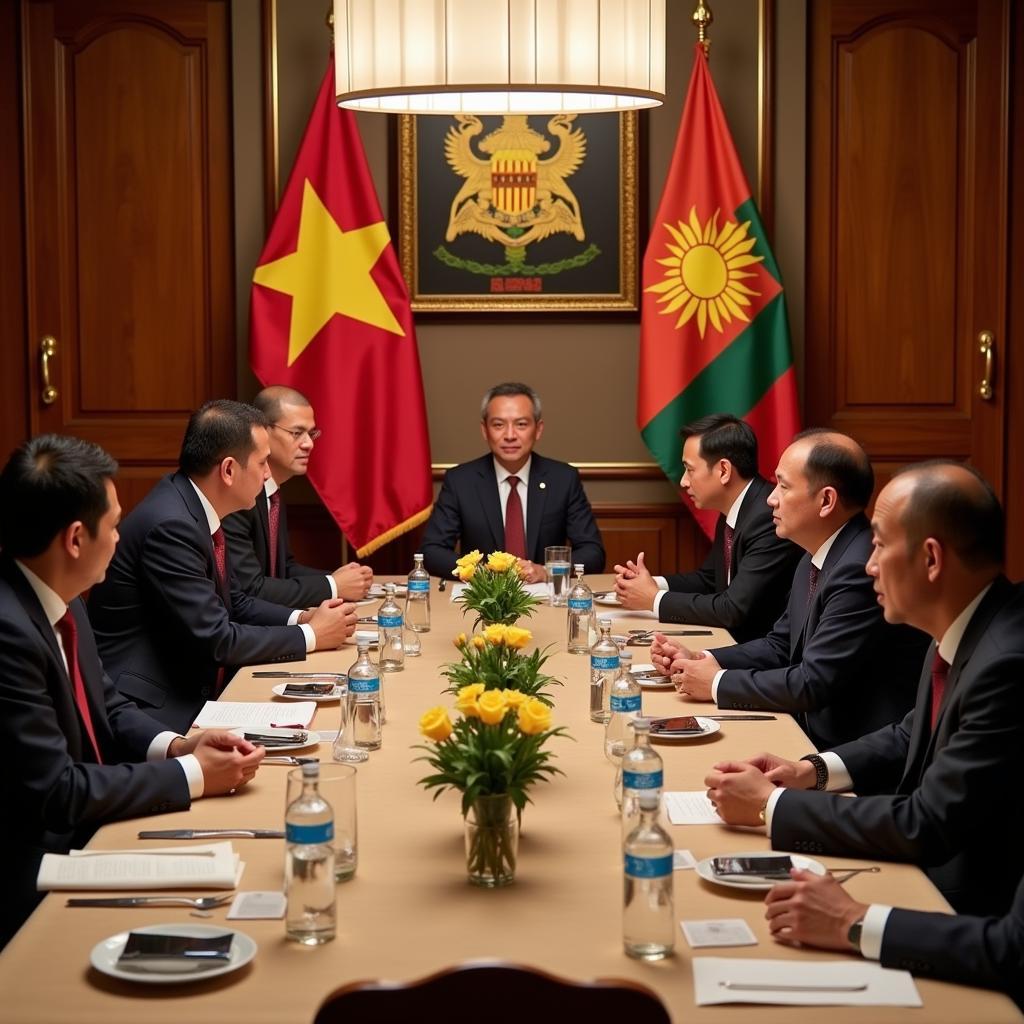The evolving political landscape of Southeast Asia has brought about a complex interplay between member states, particularly regarding the situation in Myanmar. Discussions surrounding ASEAN, Aung San Suu Kyi, and the Malaysian Prime Minister’s stance highlight the intricate challenges facing the region. This article delves into these dynamics, examining the role of key players and exploring potential paths forward for ASEAN engagement with Myanmar.
Understanding the Malaysian Prime Minister’s Perspective on the Myanmar Crisis
Malaysia has been a vocal critic of the military coup in Myanmar and has consistently called for the release of Aung San Suu Kyi and the restoration of democracy. The Malaysian Prime Minister has advocated for a more proactive role for ASEAN in addressing the crisis, urging the bloc to engage with all stakeholders, including the National Unity Government (NUG), formed by elected representatives ousted in the coup. This position often contrasts with the more cautious approach favored by some other ASEAN member states.
Why Malaysia’s Stance Matters in the ASEAN Context
Malaysia’s stance carries significant weight within ASEAN due to its historical role as a founding member and its commitment to democratic principles. The Malaysian Prime Minister’s vocal criticism of the coup and his calls for ASEAN to take stronger action have placed pressure on the bloc to reconsider its traditional approach of non-interference. This assertive stance reflects the growing unease within the region about the prolonged crisis in Myanmar and its potential destabilizing effects.
Aung San Suu Kyi’s Role and the Future of Myanmar
Aung San Suu Kyi remains a pivotal figure in Myanmar’s political landscape, despite her detention and ongoing trials. Her legacy as a pro-democracy icon and Nobel Peace Prize laureate continues to inspire many within Myanmar and internationally. However, her image has been complicated by the Rohingya crisis and her perceived inaction during the military’s crackdown. Understanding her role and the challenges she faces is crucial for navigating the complexities of the Myanmar situation.
The Challenges of ASEAN Engagement with Myanmar
ASEAN’s engagement with Myanmar has been fraught with challenges. The bloc’s principle of non-interference in the internal affairs of member states has limited its ability to effectively address the crisis. Furthermore, differing perspectives among ASEAN members on how to approach the situation have hampered efforts to develop a unified and effective response. Some members prioritize maintaining stability and avoiding further escalation, while others, like Malaysia, advocate for stronger measures to pressure the military regime.
Finding a Path Forward: ASEAN, Aung San Suu Kyi, and the Malaysian Perspective
The future of Myanmar and the region hinges on finding a sustainable solution to the current crisis. This requires a concerted effort from ASEAN member states, with a crucial role for Malaysia’s continued advocacy. Exploring alternative approaches to engagement, such as increased dialogue with all stakeholders, including the NUG, and targeted sanctions against the military leadership, could offer a potential path forward.
 ASEAN leaders discussing the Myanmar crisis at a regional summit
ASEAN leaders discussing the Myanmar crisis at a regional summit
What Does the Future Hold for ASEAN-Myanmar Relations?
The future of ASEAN-Myanmar relations remains uncertain. The bloc’s credibility is at stake, as is its ability to effectively address regional challenges. The Malaysian Prime Minister’s ongoing calls for a more robust and proactive approach to the Myanmar crisis represent a vital contribution to the ongoing debate within ASEAN. Finding a path forward requires a delicate balance between upholding ASEAN principles and addressing the urgent need for a peaceful resolution to the conflict.
Conclusion
The complex interplay between ASEAN, Aung San Suu Kyi, and the Malaysian Prime Minister’s perspective underscores the significant challenges facing the region. Malaysia’s assertive stance and its advocacy for a more proactive ASEAN role have brought the Myanmar crisis to the forefront of regional discussions. Finding a sustainable solution requires a unified and decisive response from ASEAN, one that prioritizes the restoration of democracy, the release of political prisoners, and the protection of human rights in Myanmar. The future of Myanmar, and indeed the stability of the region, depends on it. The discussions surrounding ASEAN, Aung San Suu Kyi, and the Malaysian Prime Minister’s stance are crucial in shaping the path forward.
FAQ
-
What is ASEAN’s official position on the Myanmar coup?
ASEAN has called for a peaceful resolution to the crisis and urged all parties to exercise restraint. -
What is the significance of the Malaysian Prime Minister’s stance on Myanmar?
Malaysia’s vocal criticism and calls for stronger ASEAN action have put pressure on the bloc to reconsider its approach. -
What is the current status of Aung San Suu Kyi?
Aung San Suu Kyi is currently detained and facing various charges brought by the military regime. -
What are the main challenges facing ASEAN in addressing the Myanmar crisis?
The principle of non-interference and differing perspectives among member states have hampered ASEAN’s ability to effectively respond. -
What are some potential paths forward for ASEAN engagement with Myanmar?
Increased dialogue with all stakeholders, including the NUG, and targeted sanctions are potential options. -
What role can Malaysia play in resolving the Myanmar crisis?
Malaysia can continue to advocate for a stronger ASEAN response and engage in diplomatic efforts to facilitate dialogue. -
How does the Myanmar crisis impact regional stability?
The prolonged crisis poses a risk to regional stability and could lead to further instability and displacement.
Other related articles you might be interested in:
- The Future of Democracy in Southeast Asia
- ASEAN’s Role in Regional Conflict Resolution
- The Impact of the Myanmar Coup on Regional Economies
Need support? Contact us 24/7: Phone: 0369020373, Email: aseanmediadirectory@gmail.com, or visit us at: Thôn Ngọc Liễn, Hiệp Hòa, Bắc Giang, Việt Nam.